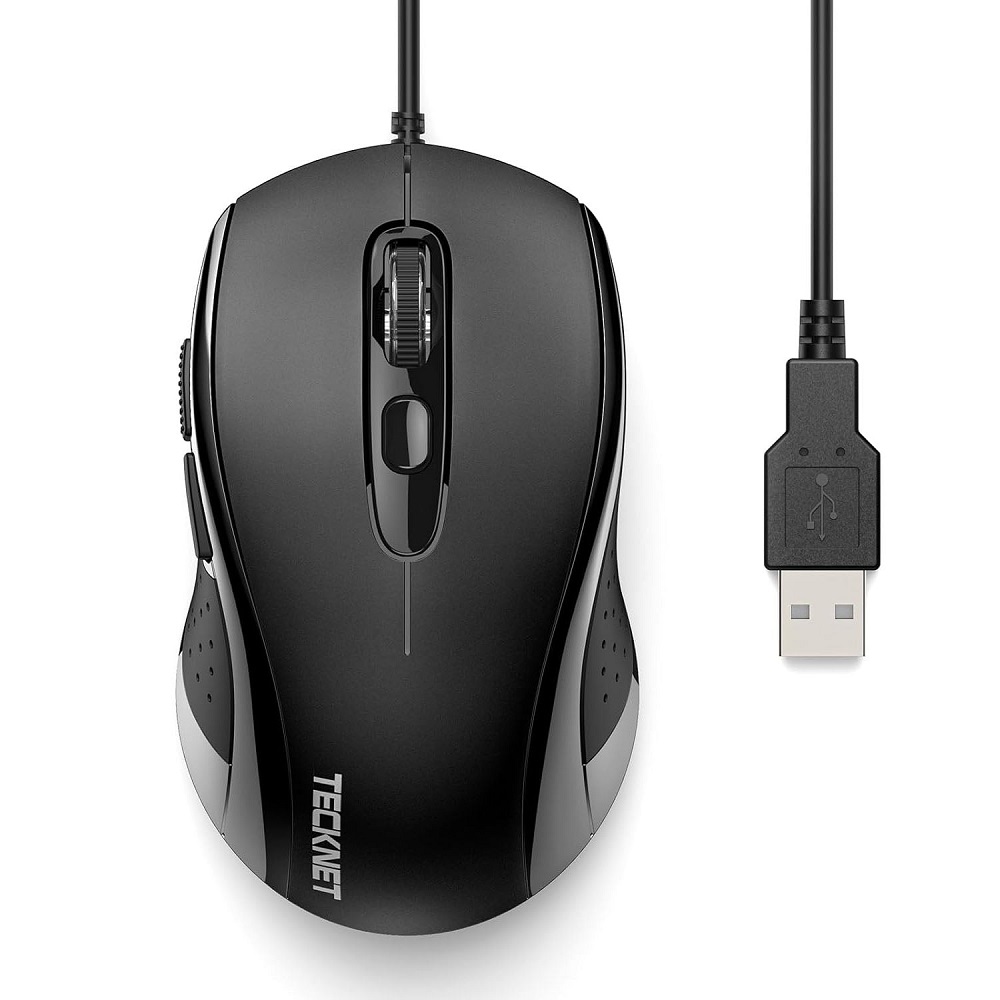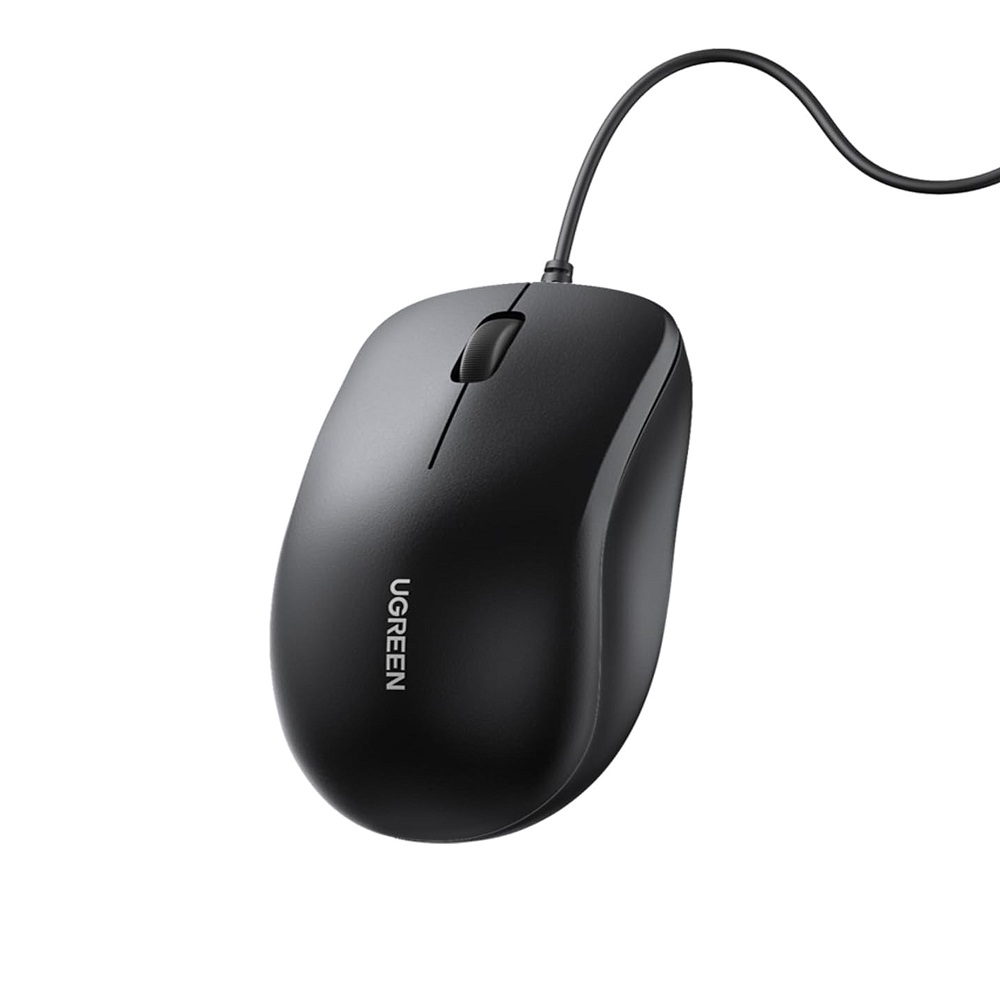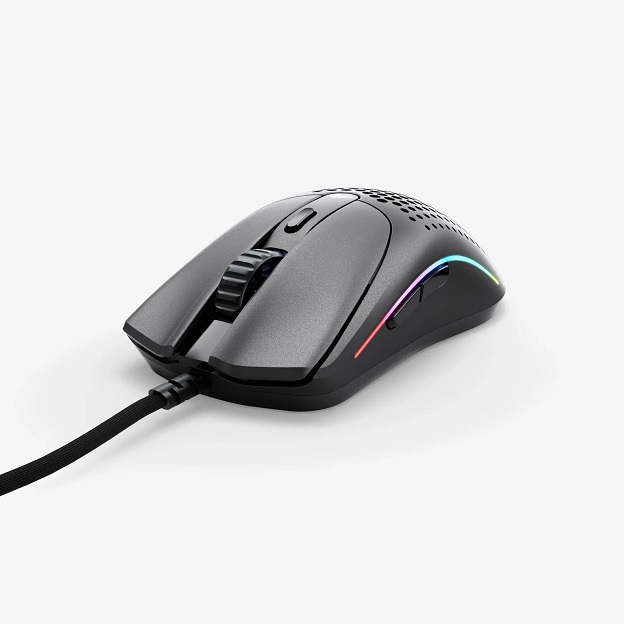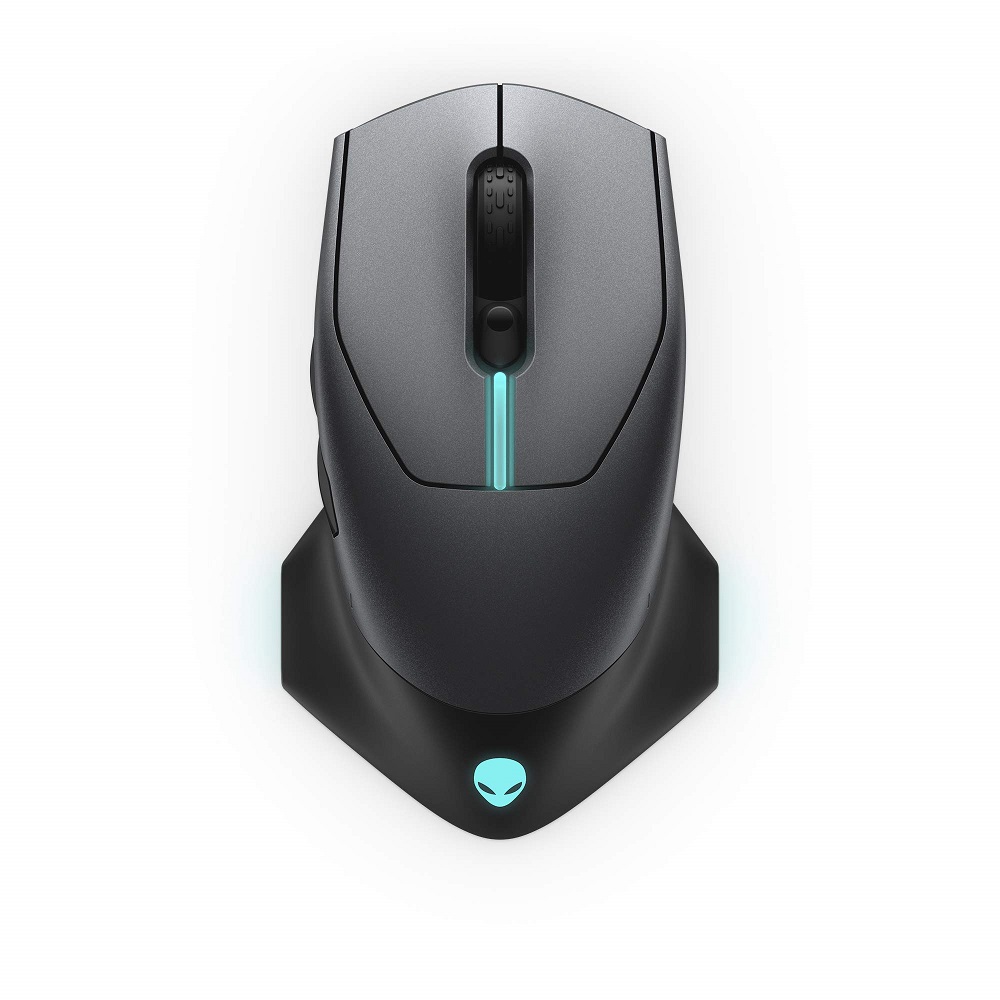Wired vs. Wireless: Understanding the Core Differences
When choosing a mouse, one must consider the core differences between wired and wireless options. Wired mice connect to computers with a physical cable. This direct connection often results in more consistent performance and quicker response times. In contrast, wireless mice use Bluetooth or other wireless technologies to connect, offering freedom from cables but potentially introducing latency and interference.
Wired mice are straightforward with setup—plug them into the USB port, and they’re ready. There’s no need to worry about charging batteries or connecting through wireless signals. This can be crucial for gamers or professionals who rely on uninterrupted, immediate inputs for competitive play or work.
On the flip side, wireless mice provide a cleaner, more flexible setup. Without cables, desks stay uncluttered, offering a wider range of movement. This is great for those with mobile setups or who dislike the restriction of cords. However, remember that wireless technology requires power, so keeping your mouse charged is a new routine to adopt.
The most notable point in the wired versus wireless debate is latency, or input lag. Wired mice generally have lower latency, making them the go-to choice for applications where timing is everything, like competitive gaming. Wireless mice have improved significantly, but for now, they may not match the split-second response of a wired counterpart.
When discussing price, wired mice often come cheaper than their wireless equivalents. If budget is a concern and performance is a priority, wired might be the right way to go. Nevertheless, with advances in wireless technology, the performance gap is closing, making wireless a viable option for most users, not just casual gamers.
Ultimately, the decision of whether a wired or wireless mouse is better for gaming boils down to personal preference and specific use-case scenarios. Carefully weigh the pros and cons to find which suits your gaming or working style the best.

Connectivity and Convenience: The Case for Wireless Mice
Wireless mice offer untethered freedom and a clean desk setup. They connect via Bluetooth or other wireless tech, without the need for cables. This convenience allows for easy movement and a minimalist workspace, appealing for both gamers and professionals. Ease of use is a primary advantage here; no bothersome cords to manage or get tangled.
When considering a wireless mouse for gaming, flexibility is key. You can move without cords hindering your actions. Traveling gamers appreciate the ability to quickly set up anywhere. Home gamers enjoy the clutter-free space.
Modern wireless mice have come far in reducing latency. Advances in technology lessen the gap with wired counterparts. Response times have improved, making them more viable for gaming.
Power is a necessity for wireless mice, though. They need charging, so planning is essential. Yet, many find that the convenience outweighs the extra step.
Remember, personal preference plays a role in choosing your gaming peripherals. Wireless mice offer a compelling mix of connectivity and convenience. They might just be the better choice for gamers valuing a clean setup and mobility over the ultimate in response time.
The Importance of Response Time and Precision in Gaming Mice
When you game, every millisecond counts. Response time, therefore, becomes critical in gaming mice. A fast response time means your commands register quickly. This leads to more precise gameplay. Wired mice often excel here, delivering near-instant feedback from actions to screen.
Precision is just as important. You need accuracy for targeting or executing complex maneuvers. A high-quality mouse sensor ensures your movements are tracked accurately. This allows for precision clicks and swift reactions. Aiming and movement become more intuitive with a precise mouse.
Gaming mice are crafted to enhance these two features. They come with advanced sensors for accuracy and low-latency for prompt responses. Also, they are equipped with settings you can tweak. This ensures your mouse responds just as you prefer.
Considering all this, the pros lean towards wired mice. They provide reliability in response times and precision. But this doesn’t rule out wireless options completely. Modern wireless mice have improved greatly. They now offer competitive precision and response times.
In the end, whether wired or wireless is better for gaming comes down to your needs. If you game casually, wireless might suit you for its convenience. If you aim to compete, wired mice might give you the winning edge.
Adjusting Your Mouse Settings for Optimal Performance
Getting the most out of your gaming mouse involves fine-tuning its settings. Whether wired or wireless, customization is key for optimal performance. On most operating systems, accessing mouse settings is straightforward and allows for extensive customization.
On Windows 10, you can adjust your mouse settings by navigating to the ‘Settings’ app. After opening it, select ‘Devices’, then ‘Mouse’. Here you will find options to adjust pointer speed, scrolling speed, and button configurations. For deeper customization, like sensitivity or specific profiles for games, click on ‘Additional mouse options’.
For Mac users, start by clicking on the Apple menu, then ‘System Preferences’, followed by ‘Mouse’. Mac offers options to change the tracking speed, double-click speed, and scroll direction. Adjust these settings while testing the changes in real-time to find what best suits your gameplay.
Apart from OS-based settings, many gaming mice come with their own software. This software often provides more detailed control over DPI settings, lighting, and even macros. Adjusting these settings can greatly enhance your gaming experience, making each action more precise.
Proper configuration can drastically reduce input lag, especially important in fast-paced games. By fine-tuning your mouse settings, you ensure that every click and movement is as responsive as possible. Remember, what works best can vary widely between different games and personal preferences. Experiment with different settings until you find the perfect fit for your gaming style.
The Argument for Wired Gaming Mice: Reliability and Response
Wired gaming mice are renowned for their reliability. They offer uninterrupted connectivity since they plug directly into a computer. This hardwired connection eliminates concerns about interference and delays. Hence, they provide a notable edge in response time. For gamers, especially those in competitive arenas, this is crucial. Fast response times can mean the difference between victory and defeat.
Moreover, wired mice do not rely on batteries. This eradicates the worry of a mouse dying at critical moments. These devices are generally less costly as well. Without the need for wireless technology, manufacturers can produce them at a lower cost. Cost-efficiency makes wired mice an attractive option for budget-conscious gamers.
The simple plug-and-play setup of wired mice adds to their appeal. There’s no need for pairing or worrying about signal strength. You just connect the mouse to a USB port, and you are good to go. This ease of use is particularly beneficial during gaming tournaments or intense work sessions.
In summary, wired mice offer advantages that are hard to overlook. They include superior latency, reliability, cost efficiency, and ease of use. These features make them a solid choice for serious gamers and professionals alike.
Gaming Mice vs. Regular Mice: Are the Extras Worth It?
When considering whether to purchase a gaming mouse over a regular mouse, it’s important to understand the distinct differences and benefits. Gaming mice are specifically designed with advanced features that enhance gameplay. These include higher DPI (dots per inch) for better precision, additional buttons for more functions, and faster response times that help with quick reactions in games.
Precision and responsiveness are crucial in gaming. A gaming mouse provides significant improvements in these areas compared to regular office mice. They are built to offer higher accuracy with sensors that track movements precisely. This allows gamers to execute intricate maneuvers that can be the difference in competitive settings.
Durability is another advantage of gaming mice. They are constructed to withstand long hours of use and the rapid, intense clicking seen in many games. The materials used are generally of higher quality, ensuring that they last longer even under stressful conditions.
Customization is another big selling point. Gaming mice often come with software that allows users to set macros, adjust sensitivity, and even customize lighting. This level of customization is not usually available with regular mice, which tend to have fixed settings.
Lastly, the aesthetic appeal of gaming mice can also be a deciding factor. They often feature ergonomic designs and LED lights, which not only look good but also enhance the gaming experience.
In conclusion, while gaming mice are typically more expensive than regular mice, the additional features they offer can significantly enhance your gaming experience. They provide better control, precision, customization options, and durability, making them a worthwhile investment for gamers at any level.
The Evolution and Tech Advances in Wireless Gaming Devices
The evolution of wireless gaming devices has been significant over the past decade. Advances in wireless technology have vastly improved the performance, reliability, and versatility of these devices, making them a top choice for many gamers.
- Improved Battery Life: Modern wireless gaming mice now boast extended battery life. Players can enjoy long gaming sessions without worrying about charging frequently.
- Better Latency: With the development of technologies like 2.4 GHz wireless and Bluetooth 5.0, the latency issue has been dramatically reduced. Wireless mice now offer response times that near those of their wired counterparts, minimizing lag during gameplay.
- Enhanced Precision: Technological advancements have enabled more precise sensors in wireless mice. These improve accuracy and tracking, crucial for gamers who rely on swift and precise movements.
- Increased Customization: Wireless mice now come with customizable options previously only found in wired mice, such as adjustable DPI settings, programmable buttons, and RGB lighting. Software enhancements have made these features more user-friendly and efficient.
- Convenience and Portability: The absence of cables offers a cleaner setup and makes it easier to transport the mouse, ideal for gamers who attend tournaments or travel often.
- Integration with Multiple Devices: Some wireless mice can now seamlessly connect to multiple devices. Switching between devices is smooth, enhancing productivity and flexibility in usage scenarios.
The continuous improvement in wireless technology not only bridges the gap between wireless and wired gaming mice but also provides additional benefits that cater to the needs of modern gamers, making them increasingly popular in the gaming community. Whether it’s for competitive gaming sessions or casual play, the advancements in wireless gaming devices enhance the gaming experience significantly.
Choosing the Right Gaming Mouse for Your Needs
Choosing the right gaming mouse involves several factors. The decision mainly depends on your specific gaming needs and habits. Here are essential considerations to help you make the best choice:
- Evaluate Your Gaming Style: Do you play fast-paced FPS games or strategy-based MMOs? Different gaming styles benefit from different mouse features. Precision and speed are crucial for FPS gamers, which wired mice best provide. MMO players may find the extra buttons on gaming mice useful.
- Consider Comfort and Ergonomics: Gaming sessions can last for hours. It’s vital that your mouse feels comfortable in your hand to avoid strain. Look for mice designed to fit your hand and grip style. Remember, comfort can significantly enhance your gaming performance and experience.
- Wired or Wireless?: This choice can impact your gaming setup. Wired mice eliminate worries about battery life and potential lag. On the other hand, wireless mice offer freedom from cables and a cleaner setup. Assess what’s more critical for your gaming environment.
- Check Sensor Quality: The mouse sensor’s accuracy is paramount. A high-quality sensor ensures that every movement is captured and translated accurately on the screen. This precision is especially important in competitive gaming where every millisecond counts.
- Budget Considerations: Determine how much you are willing to spend. While gaming mice are generally more expensive than regular ones, they offer features that regular mice do not. Weigh the cost against the potential benefits to your gaming experience.
- Read Reviews and Get Recommendations: Lastly, consult reviews and ask for recommendations. Feedback from other gamers who have tested different mice can provide insight into durability and performance. This can guide your decision towards the best mouse for your gaming needs.
By considering these aspects, you can find a gaming mouse that not only meets but exceeds your needs. Whether it’s for professional gaming or casual play, the right mouse can make all the difference.


